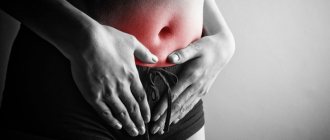The woman’s body is a mystery that has not yet been solved. Scientists and doctors, having joined forces, are all trying to answer questions about how it turns out that the female half of humanity often changes their mood, seasonal diseases and the like can manifest themselves more acutely. Particularly often the subject of dispute is the features of menstruation. After all, this is a very complex process that occurs in the body of every woman: a monthly “shake-up”, the moment when the reproductive system lets its owner know that the cycle has ended. In addition, menstruation also cleanses the body and renews it. After menstruation, every woman understands that a new time cycle of her body has begun, its further growth and development. There is no complete answer to the question of how many years menstruation lasts or until how long they should last. It all depends on the person himself, his heredity, image and lifestyle. In this article we have collected information about what menopause is, when it occurs, when it should occur, as well as about menopause as an important period for every woman.
Changes in a woman's body with age
Every woman changes many times throughout her life. It's not just about hairstyle, figure or lifestyle. The general condition of the body, in particular the reproductive system, changes. The moment when the ovaries stop producing follicles, which are responsible for the maturation of the egg, is called menopause. During this period, menstruation stops and the woman loses her ability to bear children.
Of course, the onset of menopause is preceded by several important stages that a woman goes through throughout her life:
- The first stage is childhood, when the human body develops and grows. The processes in the body of men and women at this stage are practically no different.
- The second stage is adolescence. During this period, significant changes occur, and the woman’s body activates the work of sex hormones. The girl’s breasts enlarge, her body shape “softens,” and menstruation begins on certain dates of each month. This moment is extremely important, as it signals that the process of puberty in the female body has begun.
- Youth. Until about forty-five years old, a woman is rarely bothered by problems - her cycle is completely established, and she knows what to expect from her body. After this age, the period of premenopause begins. It is characterized by irregular periods, as well as changes in the nature of discharge.
- This is followed by two important stages - menopause and postmenopause. It is menopause that doctors most often point to when answering the question of how many years menstruation lasts. There is an approximate time period, but it is impossible to answer this question precisely, since everything is individual for each person.
Briefly about menstruation
A healthy woman's period comes every month and lasts from four to six days. Sometimes the menstrual cycle gets confused, and they begin not on the planned dates, but earlier or later than the day marked on the calendar. This is a completely normal phenomenon for unfinished puberty, pregnancy or the postpartum period - however, a cycle failure for no apparent reason requires contacting a gynecologist, who will find out the cause and help solve it.
After childbirth, menstruation is temporarily replaced by specific discharge - lochia, which disappears after two weeks.
During the period of breastfeeding, menstruation may disappear completely for some time. This is a natural process that is regulated by the body in order to prevent a new pregnancy in such a short time. In medicine, this phenomenon is called lactational amenorrhea and should not be a cause for concern.
https://youtu.be/PxOSKE11-Kc
When does menopause occur?
On the one hand, menstruation is not the most pleasant process, and is often also painful. However, we should not forget that menstruation in women is a signal from the body that everything is in order, that it is healthy, that reproductive function is normal, and the woman can give birth. It is precisely because of the duality of the process itself that opinions about menopause vary among women. Some say that this is a vacation, others remind that this is a signal that they will no longer be able to become mothers. The debate can go on forever, however, we must understand that menopause comes sooner or later.
This period will come when the age and condition of the body are conducive to it.
Accepting it is the best way to live another long, healthy and happy life. The question of how many years menstruation lasts disappears by itself when a woman gets to know her body better, as well as the processes occurring in it. However, there are also approximate figures. This is the age of forty-five and older. Before this, menopause rarely occurs and is called premature.
Age-related cessation of menstruation
The complete cessation of menstruation in women primarily depends on the purely individual characteristics of the body. This period is called menopause, which most often begins from 41 to 60 years, while the average age of its onset is from 51 to 53 years. The cessation of menstruation is associated with the decline of ovarian function, decreased hormone production, or surgical interventions in the genitourinary system.
If the ovaries were removed due to their disease, menopause with the complete cessation of menstruation can occur as early as thirty years of age.
The cessation of menstruation before the age of 38 without an obvious reason may indicate premature ovarian failure - a disease that must be treated. To restore menstrual and reproductive function, women are prescribed medications that contain female sex hormones.
Also, the early cessation of menstruation can be influenced by factors such as constant stress, fasting, smoking, a vegetarian diet, improper use of hormonal contraceptives, and even living above sea level above 3500 meters. However, the controlled use of hormonal contraceptives can delay the onset of menopause by blocking ovulation, which preserves the ovarian follicular apparatus. This same device is destroyed by toxic substances from tobacco smoke if a woman smokes more than ten to fifteen cigarettes per day.
Factors influencing early menopause
A woman will always have a desire to explore her body and discover new possibilities in it. But the turning point with menopause, as it seems to them, breaks their life. However, this is not the case. Firstly, a decrease in libido and lack of reproductive function does not mean that a woman ceases to be full-fledged. Secondly, menopause is a process, not a moment. And its onset can occur at a fairly late age. Everything, of course, depends on the person himself. Early menopause may occur if:
- Weakness during menstruation
- What does bloating during menstruation mean?
- Diarrhea during menstruation - the cause of diarrhea
- What to do if your period falls on New Year's holidays
- There are many stressful situations in a woman's life. In general, stress is the main catalyst for all diseases and rapid age-related changes,
- a person leads an unhealthy lifestyle: drinks, takes drugs, smokes,
- a woman is hereditarily predisposed to the early onset of menopause.
Watch this video on YouTube
Every woman who closely monitors her health and listens to her body’s signals is well aware of...,
However, doctors cannot agree on what age women are most susceptible to the onset of menopause. It is often said that by the age of fifty, menstruation stops completely. However, there are exceptions to this rule. In addition, at this age, periods may still come irregularly, each time decreasing in duration. This is to blame for the remnants of female hormones, which still make themselves felt from time to time. However, this also passes over time.
What determines the age of menopause?
As we noted earlier, it is impossible to reliably say at what age women stop menstruating, because it depends on many individual parameters. However, there are a number of common factors that lead to menstrual irregularities and, as a result, accelerate the onset of menopause. Such factors include cancer and a course of radiation therapy, surgery on the pelvic organs, hereditary or acquired gynecological pathologies - they are conventionally called direct and reflect the dependence of what changes the female body undergoes and what consequences this leads to.
There are also indirect factors, such as: poor environment, addiction to tobacco or alcohol, excessive or, conversely, insufficient physical activity, frequent stress, difficult childbirth, problems with sex life, and more. They can also cause menstruation to stop prematurely. The menstrual cycle is exposed not from the inside, but from the outside.
See also: Menstruation after hysteroscopy
Opinions of gynecologists
Of course, in the practice of every doctor there are various cases that allow him to judge each disease in one way or another. However, even gynecologists who have been observing one patient all their lives and know the processes occurring in his body, still cannot answer the main question - until how many years do menstruation last? The cessation of the menstrual cycle is a very individual thing and is inaccessible to a total analysis for most doctors. That is why it is very important to monitor the slightest changes and fluctuations, be sensitive to any warning signs and know all the ins and outs of this process.
Symptoms indicating the onset of menopause:
- First of all, these are the so-called tides. The bottom line is that a woman experiences hot or cold flashes. They occur with irregular frequency, and it is almost impossible to get rid of them. This symptom may also be accompanied by increased sweating.
- Doctors also note serious changes in a woman’s character: she may become softer, or vice versa.
- Frequent headaches, migraines may develop, requiring complex treatment.
- As a woman's sex life gradually changes, so does her perception of it. Her libido may decrease or increase. Some note a sharply advancing absolutely neutral attitude towards sex.
- Brittle bones, loss of skin elasticity, the appearance of wrinkles, sudden weight gain and much more are also possible.
Watch this video on YouTube
Signs of first menstruation in girls
The main signs of the first menstruation in young girls are from the following signs:
- Premenstrual illness - appears in a girl a few days before her menstrual cycle. It manifests itself in an emotional state: a girl may become nervous or nervous. May be accompanied by severe migraine, which is difficult to relieve with medication. To ease this premenstrual illness, it is recommended to walk a lot outside and eat right.
- Vaginal discharge. They appear in a girl a couple of months before the first menstrual cycle, they are transparent in color, unaccompanied by any odor. If a young lady feels that the discharge is combined with unpleasant irritation of the vaginal skin, it is recommended to urgently consult a gynecologist.
- Instant increase in breast size. The girl may notice an enlargement of her nipples, which become darker. Several years before the menstrual cycle, the young lady acquires more and more feminine features of her figure.
Not counting all the signs mentioned above. The first menstruation may occur with a feeling of nausea and at times with isolation of the body. During the menstrual cycle, health may worsen, but if the girl does not have chronic or infectious diseases, then the cycle will pass without severe deterioration.
What to pay attention to
During the first menstrual cycle, all girls feel a deterioration in the body's condition. It is important that the young lady does not have anxiety and excitement.
Parents should be told before menstruation appears that every girl will have to go through this stage. This is normal and there is no need to worry.
As a young lady undergoes hormonal changes, her figure changes and her body acquires rounded, feminine features. Also, due to hormonal levels, there may be changes in the skin of the face, blackheads and acne appear.
After hormonal changes, the skin should return to normal. But it is better to use special means to relieve inflammation.
If there are too many inflammations and blackheads, this will indicate hormonal imbalances. In this case, you need to consult with a specialist to solve such disorders in the body.
Features of the first menstrual cycle
The first menstrual cycle may take place:
- with intense discharge
- with a small amount of discharge
This is due to the individuality of each organism and the presence of diseases.
The volume of menstrual flow can reach up to 150 ml, and the duration of menstruation lasts from 3 to 7 days.
It is important to understand that the formation of the menstrual cycle occurs a couple of months before their appearance. It is difficult to know in advance on what day your next period will start. But there are statistics that the second menstrual cycle should begin in 28-30 days. There are cases when this period can increase to 6 months.
The first menstrual cycle occurs with nagging pain in the lower abdomen, itching and excessive sweating. There may be vomiting, weakness and dizziness, and high fever.
If your body temperature reaches 38 degrees and does not subside for more than 2 days, you should immediately see a gynecologist.
An increase in body temperature for 1-2 days before the onset of the menstrual cycle is normal. Only if there is no severe deterioration.
If your menstrual cycle is painful, take painkillers. But without abuse: If you have any disease, it is recommended to consult a doctor for advice and selection of tablets. Otherwise, unexpected side effects may appear.
Stages of Puberty
At birth, a girl has eggs in each ovary, the number of which is determined genetically. Hormones produced in the pituitary gland and hypothalamus promote the formation of estrogens. The first menstruation is a sign of the beginning of the functioning of the ovaries. The menstrual cycle is the process of the body rejecting a layer of mucous membrane (endometrium) along with an unfertilized egg.
The first menstruation (menarche) is a sign that a girl can become pregnant. This does not indicate psychological readiness, but only a physiological feature. The first menstrual cycle can be irregular and occurs individually for each person. But on average the age is 11-15 years. Earlier or later dates indicate premature or delayed sexual development. These indicators depend on:
- genetic predisposition;
- climate and habitat;
- emotional background;
- diseases suffered in childhood;
- food quality.
https://youtu.be/Wzdb8Wzqims
In order to approximately understand when the first critical days will occur and what kind of menstrual cycle a girl will have, it is necessary to find out when they began for her mother or grandmother. In addition, the onset of the period may be influenced by climate and place of residence. Southern and eastern girls get their periods earlier than Europeans.
Stress and physical activity, including professional sports, also affect the onset of menstruation. They can begin later if the girl was often sick in childhood, took a lot of medications, and also when there is a lack of essential vitamins and microelements in the body. This occurs due to unbalanced and poor nutrition.
What to do if your first period starts?
You need to purchase special hygiene products that will help maintain cleanliness and comfort during menstruation.
Special disposable pads are fixed to the underwear and absorb secretions. Pads should be changed regularly throughout the day and never reused.
Tampons are usually not recommended during the first period, as they can cause unusual sensations. But nowadays, many manufacturers of hygiene products produce tampons in small sizes for teenage girls.
Don't forget to tell your parents about your period. They have a right to know that you are beginning your reproductive years.
Bleeding
The symptoms of the first menstruation in girls at any age are approximately identical. First, the ovaries begin to work - these are paired sex glands, which will now release an egg every month for the purpose of fertilization. About 2 weeks before the first bleeding, the girl may notice that the discharge from the genital tract has become more abundant.
They acquire a mucous consistency, liquefy and become viscous. The discharge will remain this way for 2-5 days, after which it will change again. These signs not only indicate the imminent onset of menstruation, but also become evidence of ovulation. If you observe the behavior of your body, then in the future you can learn to easily determine the onset of ovulation.
10-14 days after the appearance of mucous discharge, the girl begins menstruation. It may be accompanied by premenstrual syndrome or occur without it. The first discharge is scanty and not as intensely red as subsequent ones.
Depending on individual characteristics, the color of menstruation can vary from pinkish-pale to intense brown. There is no need to worry if your period does not have a deep scarlet hue, like blood. It must be taken into account that the discharge also contains endometrial particles and cervical mucus, and therefore can change its color.
https://youtu.be/iIDjFy1b2y8
Preparing for your first period
It is advisable to teach the girl to keep a menstruation calendar.
This will help control the regularity of menstruation and determine the duration of both the cycle and menstruation itself. At first, while all these indicators fluctuate, the girl will get used to keeping a calendar and will be able to note whether the break between her first and next periods is too long (no more than 2-3 months), and also notice when the cycle becomes regular. If the break lasts more than three months, or if after a year and a half, menstruation has not become regular, it would be best to consult a gynecologist. In the future, such a calendar of menstruation will be very useful when visiting a gynecologist, and if suddenly something goes wrong, you won’t have to spend a lot of time and effort remembering the first day of your last menstruation - it can be easily recognized from the calendar.
You should stock up on hygiene products. Everyone knows what types of these products exist - tampons and pads. While the girl is very young, it is better to use pads. They don't need to be changed as often as tampons. Pads can be changed twice a day or more often, depending on the amount of discharge. At the same time, you should remember to keep your hands clean when changing the pad, and you also need to wash yourself before each change of pad, because spotting during menstruation is a favorable environment for the growth of bacteria.
Tampons need to be changed according to the instructions, usually every 3-6 hours. If you do not change a tampon for a long time, this can lead to toxic shock, because it does not provide blood flow, but remains inside the vagina, accumulating secretions. This is one of the reasons why young girls prefer to use sanitary pads.
Although infectious-toxic shock can only be caused by completely forgetting about the tampon for the whole day, it is still a very serious condition that you need to be aware of. Its signs:
- temperature increase;
- nausea;
- confusion;
- drop in blood pressure.
This is a life-threatening condition and can ultimately result in coma. But if you regularly change your tampon according to the instructions, there is nothing to fear.
The right decision would be to refuse a hot bath in favor of a shower; heat causes blood vessels to dilate, which is not desirable during menstruation.









